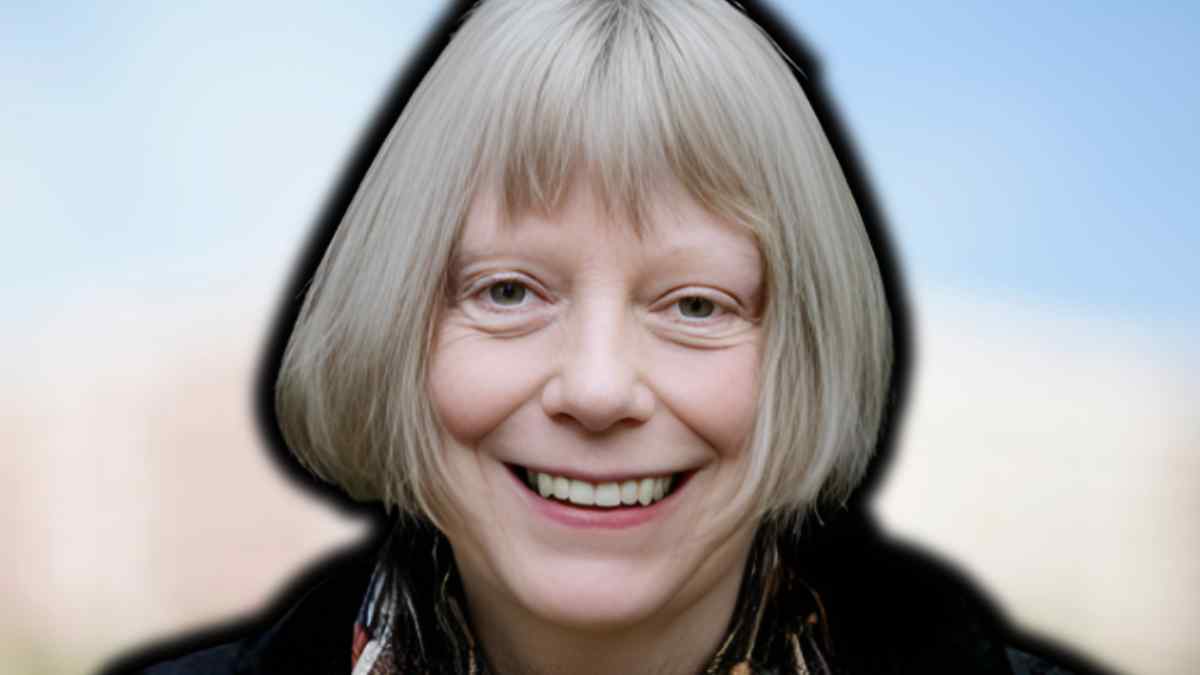Sheila Rowbotham: Architect of Socialist Feminism and Historian of the People

Sheila Rowbotham remains one of the most influential voices in modern feminist thought and radical history. Her work bridged socialism and gender, redefining how scholars and activists think about oppression, resistance and social change. This article explores her life, her ideas, her writing, and her lasting importance to contemporary struggles for justice.
Early Life and Intellectual Awakening
Sheila Rowbotham was born in 1943 in Leeds, in the industrial north of England. Growing up in a post-war Britain, she witnessed many social and economic transformations: the rebuilding of the welfare state, shifts in industry, and the social constraints faced by women in working-class communities. As a student, she was deeply influenced by the leftist traditions circulating in British universities and by the ferment of the 1960s — anti-colonial movements, New Left politics, student activism.
Her intellectual formation was shaped by Marxism, but she also sensed early on that traditional Marxist analyses left out something crucial: the experience of women, especially in the domestic sphere, unpaid labour, and the informal power relations that underlie gendered inequality. She questioned how feminist concerns could be integrated into socialism without being sidelined as “add-ons” or afterthoughts.
By the late 1960s and early 1970s, Rowbotham became involved with the History Workshop movement, which sought to write “history from below” — focusing on the lives of ordinary people, not just elites. This aligned perfectly with her instinct that women’s experiences, often hidden or dismissed, had to be central to any serious understanding of social change.
Theoretical Contributions: Socialist Feminism and Beyond
Feminism and Class: Rejecting the Separatist Trap
One of Rowbotham’s core achievements lies in insisting that women’s oppression cannot be understood apart from class, and that socialist movements must confront patriarchy, not ignore it.
She advanced the concept of social reproduction — the idea that the reproduction of the labour force (raising children, household work, caring for the sick and elderly, emotional labour) is essential for capitalism to function. This sphere, largely carried by women without pay, is structurally critical but largely invisible in classical Marxist accounts.
By foregrounding social reproduction, Rowbotham showed that demands for liberation must include care, everyday life, family, and the boundary between public and private. The feminist project, she argued, is not simply about political rights, but about transforming how society produces, maintains and values life.
Democratic Practice in Movements
Another central theme in Rowbotham’s writing is how social movements organise. She worried that many left organisations replicated authoritarian patterns: leadership hierarchies, technocratic elites, exclusion of women and minorities, rigid discipline.
In Beyond the Fragments, co-written with Lynne Segal and Hilary Wainwright, she argued that the radical left needed to break free from the “fragmentation” of struggle into specialised silos and instead build networks, alliances and democratic institutions across movements. She urged that feminist, labour, anti-racist, peace and ecological struggles must talk to one another.
Her insistence on pluralism, internal democracy, self-organisation, and accountability remains a critical intervention in debates about how radical change can actually be built and sustained.
History as Liberation
Rowbotham’s historical work is not a mere chronicle: it aims to recover hidden voices, to recover women’s struggles that were erased, and to show how people in the past challenged oppression. Her historiography is simultaneously scholarly and political. It is rooted in the belief that understanding past resistance empowers present struggles.
In Hidden from History, she traced three hundred years of women’s oppression and resistance in Britain, from the 17th century through the industrial revolution and into the 20th century. She sought to show how ordinary women — domestic servants, factory workers, welfare claimants, migrant women — resisted and fostered solidarity even under harsh constraints.
Her later works continued this mission: a biography of Edward Carpenter (a radical thinker and early advocate for gay liberation), as well as autobiographical reflection on her involvement in the 1970s women’s movement.
Major Works and Themes
Here are some of her most important works and the central ideas they contain:
Women, Resistance and Revolution (1972)
One of her earliest major works. It explores international radical movements and women’s participation in them, showing how women revolutionaries made distinct interventions and how those were often sidelined in orthodox histories.
Hidden from History: 300 Years of Women’s Oppression and the Fight Against It (1973)
A foundational text in feminist history. In it, Rowbotham traces how women’s work, unpaid care, sexual control, and legal subordination evolved across centuries, and she recovers practices of resistance: petitions, protest, mutual aid, self-education.
Woman’s Consciousness, Man’s World (1973)
A more theoretical work: she analyses the personal and psychological dimensions of patriarchy, the formation of gender consciousness, and the double burden of work and home.
Beyond the Fragments (1979, with Lynne Segal & Hilary Wainwright)
A collection of essays that critique the left, propose a new pluralist politics, and integrate feminist, ecological and radical labour perspectives.
A Century of Women (1997)
A historical overview of British women in the 20th century, focusing on social, political, labour, and cultural changes — suffrage, welfare, sexual liberation, labour markets.
Edward Carpenter: A Life of Liberty and Love (2008)
A biography of Edward Carpenter, an early socialist and advocate for sexual freedom and gay rights. Through this life she examines intersections of sexuality, class, and spirituality.
Daring to Hope: My Life in the 1970s (2021)
A memoir in which Rowbotham revisits her activism in the 1970s — the feminist movement, socialism, the dilemmas of organising — and connects them to the challenges of today.
Across all her works, recurring themes emerge: the invisibility of women’s labour, the contested boundary between private/domestic and public/political spheres, the dangers of authoritarianism within left culture, the importance of memory and history for mobilisation, and the need for intersectional solidarity.
Her Role in the Women’s Liberation Movement
The British Context
In Britain, the late 1960s and early 1970s were moments of upheaval. Young women entering universities and workplaces chafed at traditional gender roles. Discussions about contraception, sexuality, access to abortion, pay equality, the double burden, and domestic violence began to surface more publicly.
Rowbotham was instrumental in shaping the early debates. She helped organise and participated in the first British Women’s Liberation Conference (1970), where demands were formulated on pay, education, childcare, housework, and legal equality. Her essays provided intellectual scaffolding for a feminism that refused to split activism and theory.
She also intervened in trade unions and left organisations, pushing them to take gender seriously — not as a secondary concern, but as foundational. She engaged in consciousness-raising groups, alternative publishing, feminist presses and small collectives that experimented with new organisational forms.
Internally Facing Critiques
One of Rowbotham’s strengths was her willingness to critique feminist or left groups when they failed to live their own ideals. She challenged tendencies to venerate “sage leadership,” to marginalise less articulate voices, or to treat women’s issues as secondary concerns.
Within feminist spaces, she was alert to how class divisions, racial hierarchies, and disparities of privilege could replicate oppression among women themselves. She pushed for inclusion of working-class, migrant, lesbian, disabled, and racialised women in the movement’s leadership and narrative.
Critiques and Debates
No thinker is above critique, and Rowbotham’s work has attracted debate — as any substantial intervention should.
Some critics argue she sometimes risks essentialising “women’s experience” — treating it as too unified across class, race or sexuality. Others counter that Rowbotham’s historicism and attention to difference help mitigate that risk.
Others suggest that although she foregrounds structures such as capitalism and patriarchy, she also posits spaces for agency and resistance. Some tension exists about where structures end and agency can begin. Critics ask: when structures are so pervasive, how much room remains?
In later decades, the institutional academic world has sometimes relegated radical feminist historians to the margins. Questions about publishing, funding, and disciplinary boundaries have meant that some of Rowbotham’s stylistic choices and modes of writing — less technocratic, more participatory — may not always find polite reception in mainstream curricula.
In the face of neoliberalism, globalisation, digital capitalism, and changing gender regimes, some critics ask how her frameworks must evolve. Her newer work, including Daring to Hope, suggests she is aware of the need for adaptation — but this remains an ongoing project for scholars and activists to extend.
Legacy and Contemporary Relevance
Renewed Interest in Social Reproduction
In recent years, feminist scholars have renewed interest in the concept of social reproduction, especially under conditions of austerity, care crises, climate stress, ageing populations and pandemics. These phenomena underline precisely the issues Rowbotham insisted upon decades ago: that unpaid care and reproductive labour are structurally critical.
Intersectional and Global Feminisms
While Rowbotham was one of the earlier voices to push feminism beyond white middle-class confines, contemporary feminist scholarship has extended and complicated her frameworks with race, migration, postcolonial critique, trans perspectives, decolonial theory, and the global gendering of labour. Her work provides important scaffolding, even as newer theorists push further.
Movement Building and Democratic Culture
Her insistence on democratic, non-hierarchical structures, accountability, cross-movement alliances and internal reflection remains vital in an era when social movements such as climate, racial justice, feminist and economic justice struggle with scale, co-option, fragmentation, and burnout. Her reminders about internal culture — how we organise, who speaks, who is heard — are more urgent than ever.
The Role of Memory and History
As memory becomes contested — with disinformation, digital erasure, historical amnesia — the project of recovering suppressed voices and resistance histories is politically urgent. Rowbotham’s historiographical approach reminds us that writing history is part of struggle: without memory, movements weaken; with memory, they can stabilise identity, inspire coherence, and sharpen critique.
Reflections on Her Memoir: Daring to Hope
In her memoir, Rowbotham returns to the 1970s, recounting her youthful activism, mistakes, hopes and disappointments. She situates her intellectual and personal journey in relation to a wider movement — but she also offers lessons for today.
One lesson is humility: she acknowledges her own shortcomings, her complicities, her repeated learning. She also refuses triumphalism: movements win gains, but sometimes also lose ground. The political terrain shifts. She writes with a sense of ongoing struggle, not archival closure.
Another lesson is intergenerational solidarity: younger feminists inherit both the gains and the burdens of prior struggle. Understanding that lineage — the debates, ruptures, partial victories — strengthens current movements.
Finally, she stresses audacity: to hope in dark times, to dream of transformation. She suggests that feminism cannot simply be defensive; it must remain visionary, imaginative, connected to broader projects of justice and social reproduction.
How to Read Rowbotham Today
If you pick up Rowbotham’s works now, here are a few guiding tips:
Read historically and politically. Her works are not just histories or theory — they argue, intervene and inspire. Read them with pen or highlighter in hand. See where she challenges orthodoxies.
Compare across time. Notice how later works revisit or revise earlier arguments. Her intellectual trajectory shows adaptation, not dogmatism.
Listen for the unsaid. Much of her power lies in the silences she unmasks: the domestic labour, mutual aid, ephemeral meetings, absent voices. Treat those as doors into deeper inquiry.
Translate to local contexts. Her theoretical frameworks can be deployed in different geographical, cultural, colonial and economic settings. How might social reproduction look in Karachi or Lahore? How might feminist organising in Pakistan engage with her lessons?
Use her as interlocutor, not idol. Her critiques are strong — deploy, challenge, extend them. Build from them, not just repeat them.
Conclusion
Sheila Rowbotham is not just a historian or feminist theorist: she is a social thinker who sought to knit theory, activism and history together. Her insistence on remembering women’s labour; her diagnosis of the structural interweaving of patriarchy and capitalism; and her commitment to democratic practice in movements have deeply shaped feminist and radical thought.



